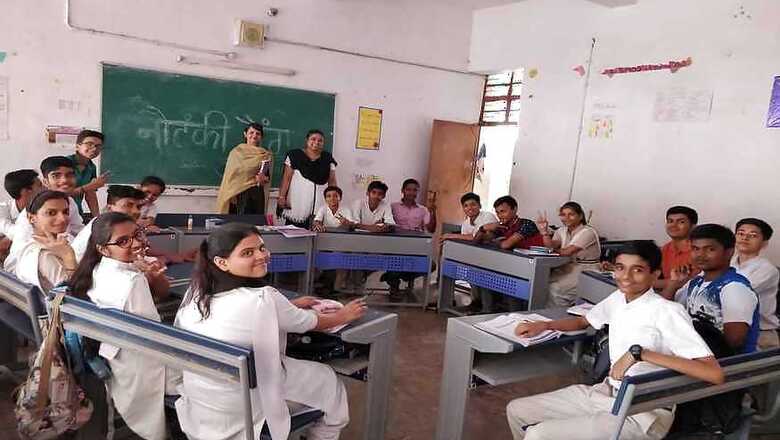
views
New Delhi: ‘Realistic’ Rama, ‘Powerful’ Prateek, ‘Joyful’ Jairaj, ‘Ambitious’ Ansh, ‘Heroic’ Hari, ‘Versatile’ Vishwajeet, ‘Naughty’ Nidhi and ‘Responsible’ Rekha.
This isn’t a masterclass in alliteration, but a simple class in English. These are new calling cards the students of Delhi government schools have given themselves after going through special spoken English classes over the summer.
English has always been a part of the regular curriculum in schools, but it is often wrongly judged to meet the requirements of spoken English, which has become a fundamental requirement in an increasingly globalised economy.
Perhaps sensing its importance at such a young age, government school students from economically weaker sections approached Chief Minister Arvind Kejriwal with a request — “Sir, humein English bolna sikhwa dijiye”.
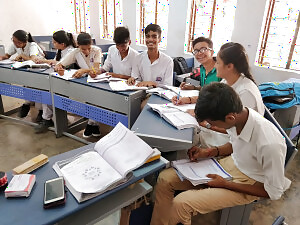
The Delhi government subsequently arranged for the special classes from June 2 to June 30 in collaboration with the British Council, India-McMillan Education, Academy for Computers Training (Gujarat) and Trinity College, London.
CLASS IN SESSION
News18 met some Class 10 students taking the special classes in the Rajkiya Pratibha Vikas Vidyalaya in west Delhi’s Hari Nagar. The teacher, too, has a suitable nickname. ‘Clever’ Chahat is teaching a class of around 20 children, trying to make the language more relatable to students by steering the conversation towards their day-to-day life.
The trick works. Students cheerfully join the conversation, tell her about their park visits and what else they do to remain healthy. All this chatting is taking place in English and words like ‘ferocious’ and ‘mesmerised’ pop up.
Unlike a traditional classroom, teaching is not bound by books and pens here. There is just the study material provided by the British Council. This does not mean the students’ attention is wavering. They are active participants in the exchange, clapping and cheering for each other.
Their teacher says the students learn more from each than from her. There is a conscious effort to ensure they are not put off by mistakes. “The students make mistakes, basically elementary in nature, but I don’t stop them in the middle of the class and conversation. I don’t correct to embarrass them. Their friends in the class correct errors and that’s how they learn,” says ‘Clever’ Chahat, who earned the moniker from her students.
Chahat says she has seen the students improve over time. “Their body language has changed. They feel confident now and it shows in the way they come to the class and participate,” she says.
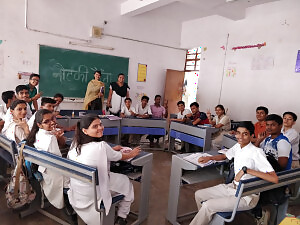
Ananda Aishwarya doesn’t have a cool nickname yet, but she, too, is a big part of the students’ life now. Teaching another class in the Hari Nagar school, Aishwarya follows simple but effective teaching methods. “We don’t make them write. I make every single student stand and start a conversation in English. The method is teacher-talk time, and not lecture-based. This is how we make the English language relatable,” she says.
WHY ENGLISH?
“Those who know English have it easy,” says ‘Victorious’ Vishwajeet. One of his schoolmates auditioned for a Hollywood movie, but lost out.
Prince says he used to feel dejected when private school students avoided him because of his inability to speak English. “I meet students of private schools in tuition classes. They always talk in English and I am unable to join them,” he says.
“There was a discussion on Avengers: Infinity Wars. I watched the movie, but could not participate in a discussion over the film. I did not know what to say while others gushed about it,” he says. When he tried to, they mocked him.
But now, a confident Prince can’t wait to join in. “I can tell them now ‘what an action-packed’ movie!”
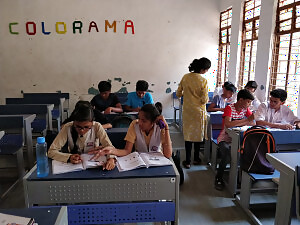
This new-found confidence can now help students scale new peaks. Their immediate goal is to ace interschool competitions, where they felt they were being sidelined by those from English-speaking schools.
“They made fun of us and that too in English. We didn’t even know what they meant, but it was evident the students did not want to talk to us,” says ‘Jolly’ Jatin.
But now, they are prepared. “Next time we go for inter-school interactions and hear someone making fun of us, we will respond using our favourite line we learned in class — ‘We feel the same way’,” he adds.
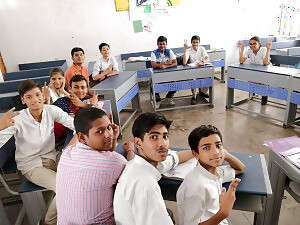
English now represents aspiration and knowledge for these children, most of who belong to economically weaker sections. “This class will make them comfortable in speaking English,” says Jami Mathew, the school’s regular English teacher.
The newly empowered students now make up her ‘Confident’ Class.













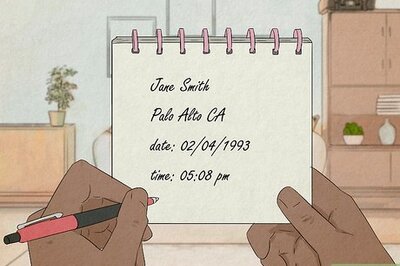
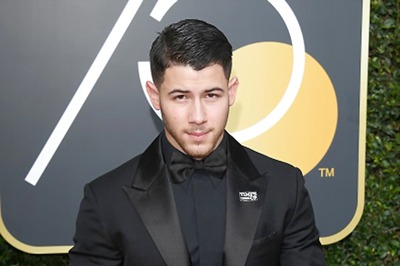
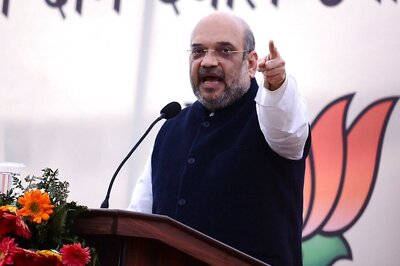




Comments
0 comment